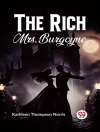In ‘The Best Works of Balzac, ‘ Honoré de Balzac presents a comprehensive collection that illuminates the author’s unrivaled mastery in capturing the intricacies of 19th-century French society. Through a myriad of characters and interwoven storylines, Balzac employs a realist literary style marked by meticulous detail and psychological depth. This anthology encapsulates foundational themes of ambition, wealth, and human folly, reflecting the rise of capitalism and social stratification during a transformative era in France, effectively establishing the groundwork for modern literary realism. Honoré de Balzac (1799-1850) was a prolific French novelist whose life experiences informed his keen observations of societal dynamics. Coming from a modest background, he faced numerous challenges, including financial struggles and a relentless work ethic that produced an extensive literary oeuvre. Balzac’s commitment to portraying the realities of life—both its beauty and its harshness—was motivated by his desire to reflect the complexities of human nature and the social tapestry of his time, making him a pivotal figure in literary history. This anthology is a must-read for anyone interested in the profound influences of literary realism and sociocultural commentary. Balzac’s incisive exploration of character and society invites readers to engage meaningfully with the text, making it an essential addition to the library of those seeking a deep understanding of 19th-century literature and its implications on contemporary thought.
关于作者
Honoré de Balzac (1799–1850) stands out in the canon of French literature as one of the preeminent novelists of the nineteenth century. His magnum opus, ‘La Comédie Humaine’, a series of more than ninety novels and novellas, epitomizes his monumental contribution to the craft of the realistic novel. In this ambitious narrative panorama, Balzac aimed to depict a tapestry of French society and chronicle the effects of industrialization and social change on individuals across different classes. His works are characterized by an intricate, detailed style and a preoccupation with the interplay between power, money, and social ambition. ‘The Best Works of Balzac’, presumably, presents a collection encapsulating his most memorable characters and incisive social critiques, likely including ‘Eugénie Grandet’, ‘Père Goriot’, and ‘Lost Illusions’, all of which delineate the complexities of human nature and the societal structures that bind it. Balzac’s profound psychological insight and his depiction of the environment as a defining factor in shaping his characters’ destinies were pioneering at the time and deeply influenced later novelists, including Gustave Flaubert and Marcel Proust. Indeed, Balzac’s exhaustive exploration of society through his fictional universe provided a template for comprehensive social novels and exerted a lasting impact on the development of literary realism.












